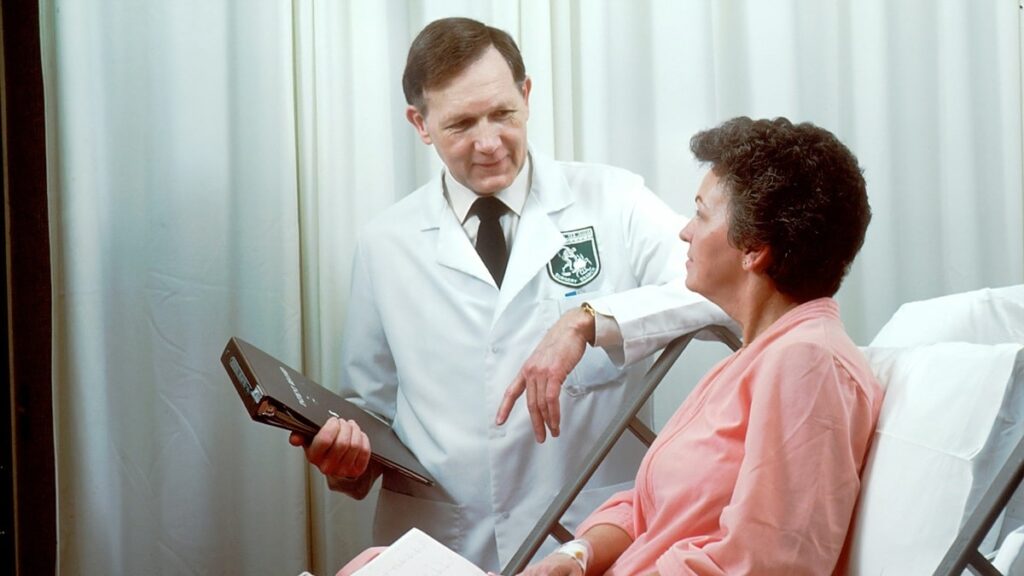Running a small healthcare practice can be challenging, yet nearly half of physicians believe the additional effort is worthwhile. In the current healthcare environment where competition is high, it becomes very important for small practices to build a good reputation.
Good public relations (PR) can help with increasing the visibility, trustworthiness, and credibility of your practice. By using specific PR methods, small healthcare practices have the opportunity to show themselves as dependable and expert providers in their local areas.
In this article, we’ll delve into the main methods that small practices can use to create a solid reputation with the help of healthcare PR.

Hire or Collaborate With a Healthcare PR Agency.
The best method for increasing a small practice’s PR efforts is to employ or partner with one of the most reputable healthcare PR agencies on the market. Such agencies possess the required skills and understanding of this complicated field, allowing them to manage your public relations effectively. They can assist you in developing focused PR campaigns that emphasize your practice’s particular abilities and services. Small practices can enjoy media relationships, crisis management, and planned communication by engaging with a healthcare PR agency.
Healthcare PR agencies often have existing ties with the media, and this can be useful in acquiring favorable exposure. They are skilled at setting up interviews, composing news bulletins, or coordinating community events. These groups can assist the practice in getting its message out to the correct audience. Moreover, they may offer useful information about current tendencies and the best methods for healthcare PR, which helps the practice maintain a lead over its competitors.
Leverage Social Media for Engagement.
For small healthcare practices, social media platforms are the perfect places where they can be involved with their community and establish a powerful online presence. By frequently creating posts that are informative and interesting, they can connect with patients, distribute health advice as well as show off their knowledge in the field. Facebook, X (formerly Twitter), or Instagram enable direct interaction with the patients and this allows the practices to handle worries, respond to questions, or give real-time updates.
Social media is also about maintaining a strong brand voice and visual identity. This helps in creating an identifiable and dependable online character. Practices must think about using social media for sharing patient reviews, behind-the-scenes glances into the practice, as well as educational information on different health matters. Replying to comments and messages from followers can also help in the development of a strong bond between the patient and practice, as well as establishing a committed community.
Develop and Maintain a Professional Website.
For small healthcare practices, having a good website is crucial to their PR plan. It acts like the digital front door of your practice, and in this case, first appearances do count. A good website design should be easy for people to navigate through, work well on mobile devices, and give full information about services offered by the practice along with details of its staff members and how they can be contacted. Patient testimonials and real-life case studies can be included to enhance the credibility of the practice and demonstrate its success stories.
In addition, search engine optimization (SEO) is critical for maintaining a professional website. By enhancing the website with important keywords, smaller practices can get better ranks in search engine result pages and draw more organic traffic. This includes making top-class content, optimizing meta tags, and ensuring that the site is quick and safe. A website that has been optimized properly improves the visibility and credibility of the practice.

Utilize Local Media and Community Outreach.
Local media and community engagement are strong methods for small healthcare practices to create a good name for themselves. When they form connections with journalists and local media, these practices can get important visibility within the community. News releases about new services, events in the community, or campaigns for health awareness could draw interest from media people and produce favorable coverage.
Providing free health checks, workshops or educational meetings is a good way to advertise the practice’s dedication to community health. It can show that it not only offers quality care but also cares deeply about keeping its community healthy.
Making relationships with local groups or charities could add to this reputation and help build positive feelings within the community.
Foster Positive Patient Relationships.
For small healthcare practices, it is important to focus on establishing and maintaining good relationships with patients. This can help in improving their reputation which greatly relies on word-of-mouth recommendations as a form of PR. When patients are happy with the care they receive, they recommend the practice to their close ones like family and friends. Thus, giving exceptional patient service along with easy communication methods and creating a comfortable environment may lead to high satisfaction from the patients’ side.
Another way to help improve the online reputation of the practice is by asking patients to give positive reviews online on platforms like Google, Yelp, and Healthgrades. At the same time, responding kindly and thoughtfully to all types of reviews demonstrates that the practice respects patient input and is dedicated to always enhancing its services. Additionally, sending follow-up calls or messages after appointments can enhance patient experience even more and promote loyalty.
Bottom Line.
In the competitive world of healthcare, small practices must leverage effective PR strategies to build and maintain a strong reputation. By hiring or collaborating with healthcare PR agencies, leveraging social media, maintaining a professional website, utilizing local media and community outreach, and fostering positive patient relationships, small practices can enhance their visibility, credibility, and trustworthiness. These strategies not only attract new patients but also create a loyal community that values and recommends the practice. Through consistent and strategic PR efforts, small healthcare practices can thrive and make a lasting impact in their communities.

